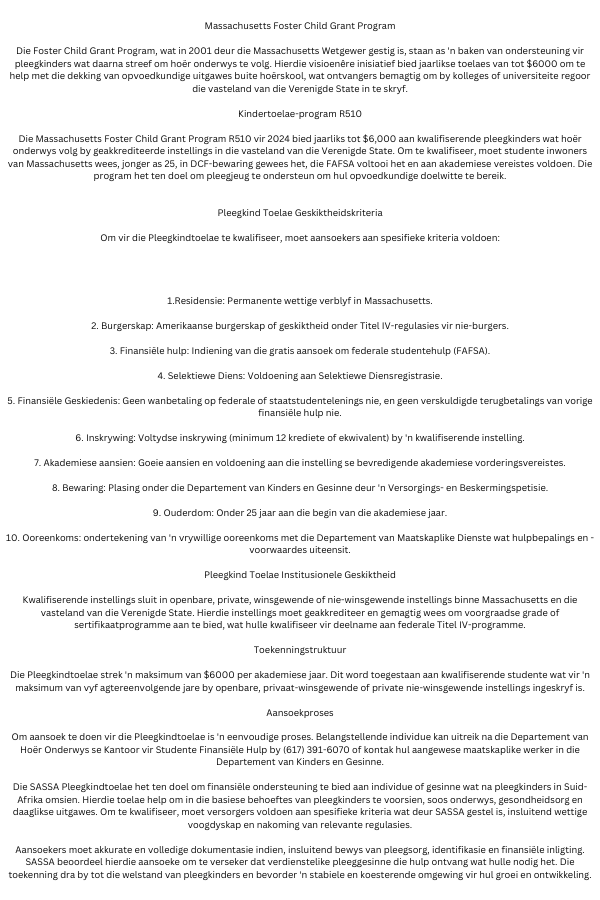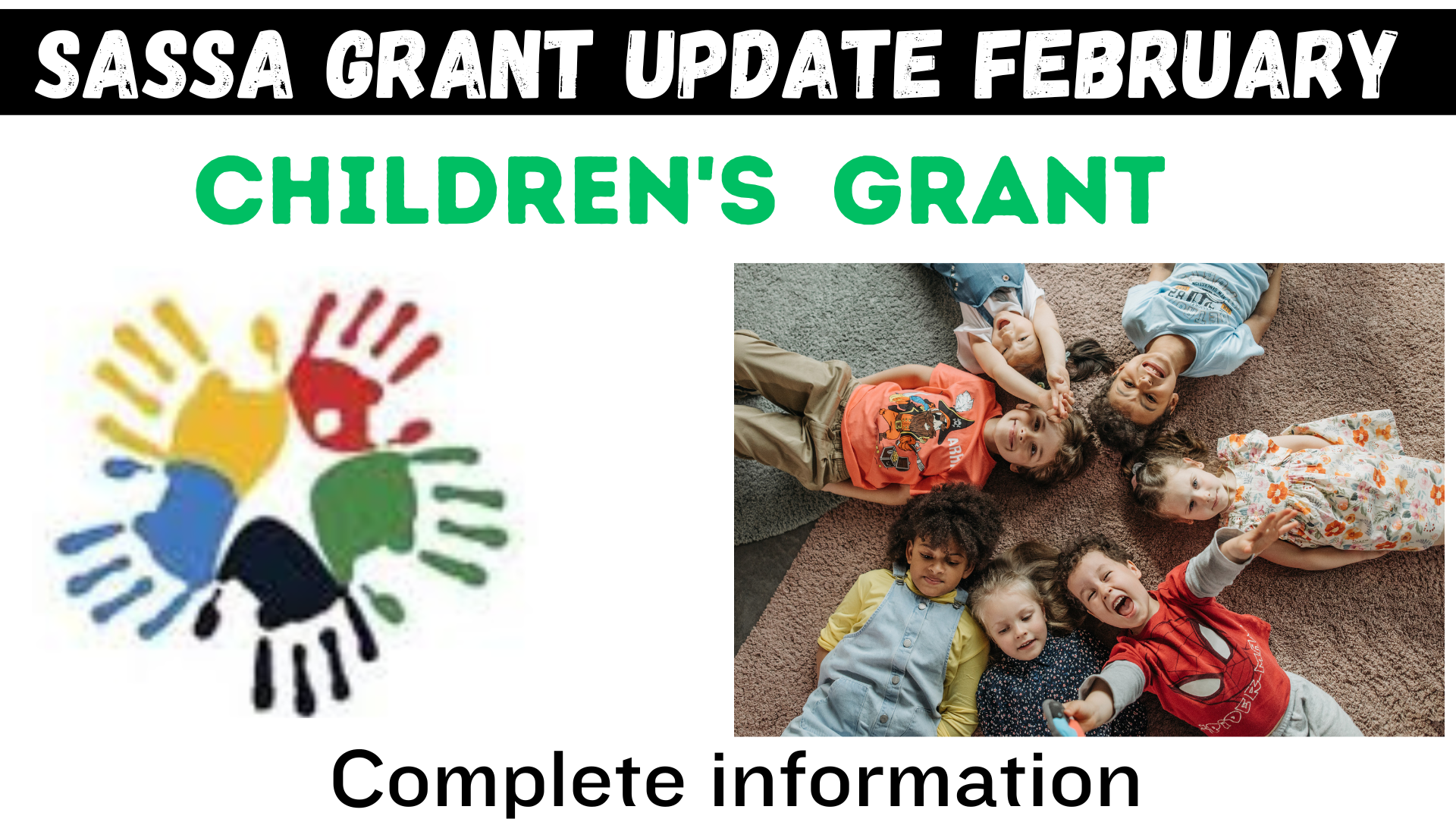Massachusetts Foster Child Grant Program
Established in 2001 by the Massachusetts Legislature, the Foster Child Grant Program stands as a beacon of support for foster children aspiring to pursue higher education. This visionary initiative offers annual grants of up to $6000 to aid in covering educational expenses beyond high school, empowering recipients to enroll in colleges or universities across the continental United States.
Child Grant Program R510
The Massachusetts Foster Child Grant Program R510 for 2024 offers up to $6,000 annually to eligible foster children pursuing higher education at accredited institutions within the continental United States. To qualify, students must be Massachusetts residents, under 25, have been in DCF custody, completed the FAFSA, and meet academic requirements. The program aims to support foster youth in achieving their educational goals.
Foster child Grant Eligibility Criteria
To qualify for the Foster Child Grant, applicants must meet specific criteria:
- Residency:Permanent legal residency in Massachusetts.
- Citizenship: U.S. citizenship or eligibility under Title IV regulations for non-citizens.
- Financial Aid: Submission of the Free Application for Federal Student Aid (FAFSA).
- Selective Service:Compliance with Selective Service Registration.
- Financial History: No default on federal or state student loans, and no owed refunds from previous financial aid.
- Enrollment:Full-time enrollment (minimum 12 credits or equivalent) in an eligible institution.
- Academic Standing: Good standing and adherence to the institution’s satisfactory academic progress requirements.
- 8. Custody: Placement under the Department of Children and Families through a Care and Protection Petition.
- Age:Below 25 years at the beginning of the academic year.
10. Agreement: Signing a voluntary agreement with the Department of Social Services outlining aid terms and conditions. SASSA Child Grant Increase 2024
Foster child Grant Institutional Eligibility
Eligible institutions encompass public, private, for-profit, or non-profit establishments within Massachusetts and the continental United States. These institutions must be accredited and authorized to offer undergraduate degrees or certificate programs, qualifying them for participation in federal Title IV programs.
Award Structure
The Foster Child Grant extends a maximum of $6000 per academic year. It is granted to eligible students enrolled in public, private for-profit, or private non-profit institutions for a maximum of five consecutive years.
Application Process
The SASSA Foster Child Grant aims to provide financial support to individuals or families caring for foster children in South Africa. This grant assists in meeting the basic needs of foster children, such as education, healthcare, and daily expenses. To qualify, caregivers must meet specific criteria set by SASSA, including legal guardianship and compliance with relevant regulations. Shocking News on Payment Amount and Eligibility

Certainly! Here are some important points about the SASSA Foster Child Grant:
Eligibility Criteria: The grant is available for children who have lost both parents, or a single parent, and are placed in foster care or alternative care.
Age Limit: Foster children must be under the age of 18 to qualify for the grant.
Application Process: Guardians or caregivers can apply for the Foster Child Grant through the South African Social Security Agency (SASSA) offices.
Documentation Required: Applicants need to provide relevant documents, including the child’s birth certificate, death certificates of parents, and court orders proving foster care.
Financial Assistance: The grant provides financial assistance to support the basic needs of the foster child, including education, health, and general well-being.
Means Test SASSA: may conduct a means test to determine the financial eligibility of the caregiver or guardian.
Regular Renewal: The grant may require regular renewal, and caregivers should ensure that they meet the renewal requirements to continue receiving the assistance.
Benefit Amount: The grant amount may vary, and it is essential to check with SASSA for the latest information on grant values.
Compliance with Conditions: Recipients must adhere to the conditions set by SASSA to continue receiving the Foster Child Grant.
Remember to verify the latest information as policies may change, and it’s crucial to stay informed about any updates from SASSA.

